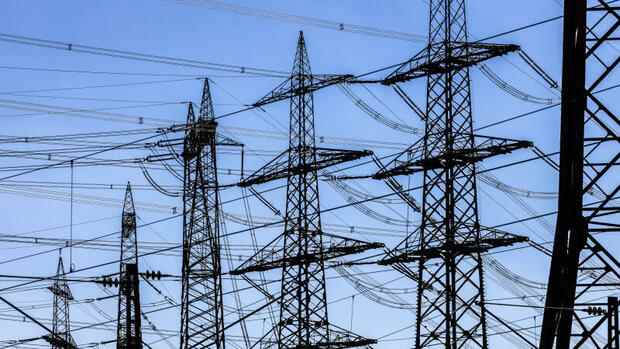Berlin The gas price brake is to take effect a month earlier than previously planned. This emerges from the decision proposed by the Chancellery for the Prime Ministers’ Conference on Wednesday.
The planned gas price brake will be introduced on March 1st, but should possibly take effect a month earlier: “Retroactivity to February 1st, 2023 is sought,” says the draft resolution.
The electricity price brake that is also planned is to come into force on January 1st. The federal government wants to cap the price of electricity for private households at 40 cents per kilowatt hour from the beginning of next year. This should apply to a basic quota of 80 percent of annual consumption. For industrial companies, electricity prices would be capped at 13 cents per kilowatt hour for 70 percent of the previous year’s consumption, it said.
Some of the money for the relief in the electricity sector is to be collected from companies by skimming off so-called random profits. “In order to finance the relief in the electricity sector, random profits from electricity generation and from gas, oil and coal companies as well as refineries will be skimmed off for a limited period of time,” says the draft. The paper does not yet give any specific details.
Top jobs of the day
Find the best jobs now and
be notified by email.
In an explanatory paper from the federal government on the key points of the relief measures, it is also stated that the siphoning off of the random profits should take place “retrospectively from September 1, 2022”. This should apply to renewable energies, nuclear energy, mineral oil, waste and lignite: “Except for storage, hard coal, natural gas, biomethane and special gases.”
Change requests from the countries to be expected
The federal government announced the electricity price brake at the beginning of the year, but has so far left open the prices at which the brake will take effect. With a view to private households, the cap at 40 cents per kilowatt hour for the basic quota is: “The difference between the market price to be paid and the cap will be offset monthly by the suppliers directly with the deduction as a relief.”
Chancellor Olaf Scholz (SPD) and the heads of government of the federal states will meet on Wednesday to discuss financial issues. The proposed resolution for this in the Handelsblatt is dated Tuesday afternoon. The draft reflects the line of the Chancellery. Changes due to country requests are to be expected.
The relief should now reach households and companies a little earlier.
(Photo: dpa)
Weeks ago, the federal government announced that it would implement proposals from an expert commission for a gas price brake from March. The countries, however, had already requested the start on January 1st. February 1st could now be a compromise.
In addition to the start of the gas price brake, a few other details of the aid are still open. The Prime Minister of Rhineland-Palatinate, Malu Dreyer (SPD), therefore expects the federal government to “specify the design of the electricity price and gas price brakes more precisely” at the meeting, she told the Handelsblatt.
>> Read here: “Calm before the storm”: German economy is growing surprisingly
Federal Minister of Economics Robert Habeck (Greens) stated that the federal government wanted to stay as close as possible to the proposals of the experts when implementing the gas price brake. Until the gas price brake comes into force in February or March, private households are to receive a one-time payment for the transition in December.
Relief planned for industry
For larger companies, the procurement price should be curbed directly. They should come to a similar price level as households and smaller companies. This applies above all to bulk consumers from industry. According to Habeck’s ideas, these should also be able to resell the subsidized gas. This should create incentives to save energy.
This proposal can also be found in the final report of the expert commission. Chancellor Scholz had not yet agreed with this view on Monday. He doesn’t think it’s right for companies to be able to resell the subsidized gas.
Economics Minister Habeck also showed sympathy for a decision by the Budget Committee that those who benefited from the energy price brakes should not pay dividends and pay bonuses. He follows that logic, he said. However, he qualified that it is particularly important that the aid can be paid out quickly.
In the case of private households, the detailed work is currently mainly about making the gas price brake as fair as possible. In its basic construction, it could relieve villa owners more than low-income earners. The federal government had therefore already announced that it would subject the aid to income tax.
Habeck explained that he imagines the limit at around 75,000 euros in taxable income. One orients oneself on the limit at the solidarity surcharge. Anyone who has to pay tax on their help should state this in their tax return as a “monetary benefit”.
More: Hardship fund and bridging aid – business and trade unions are demanding speed
